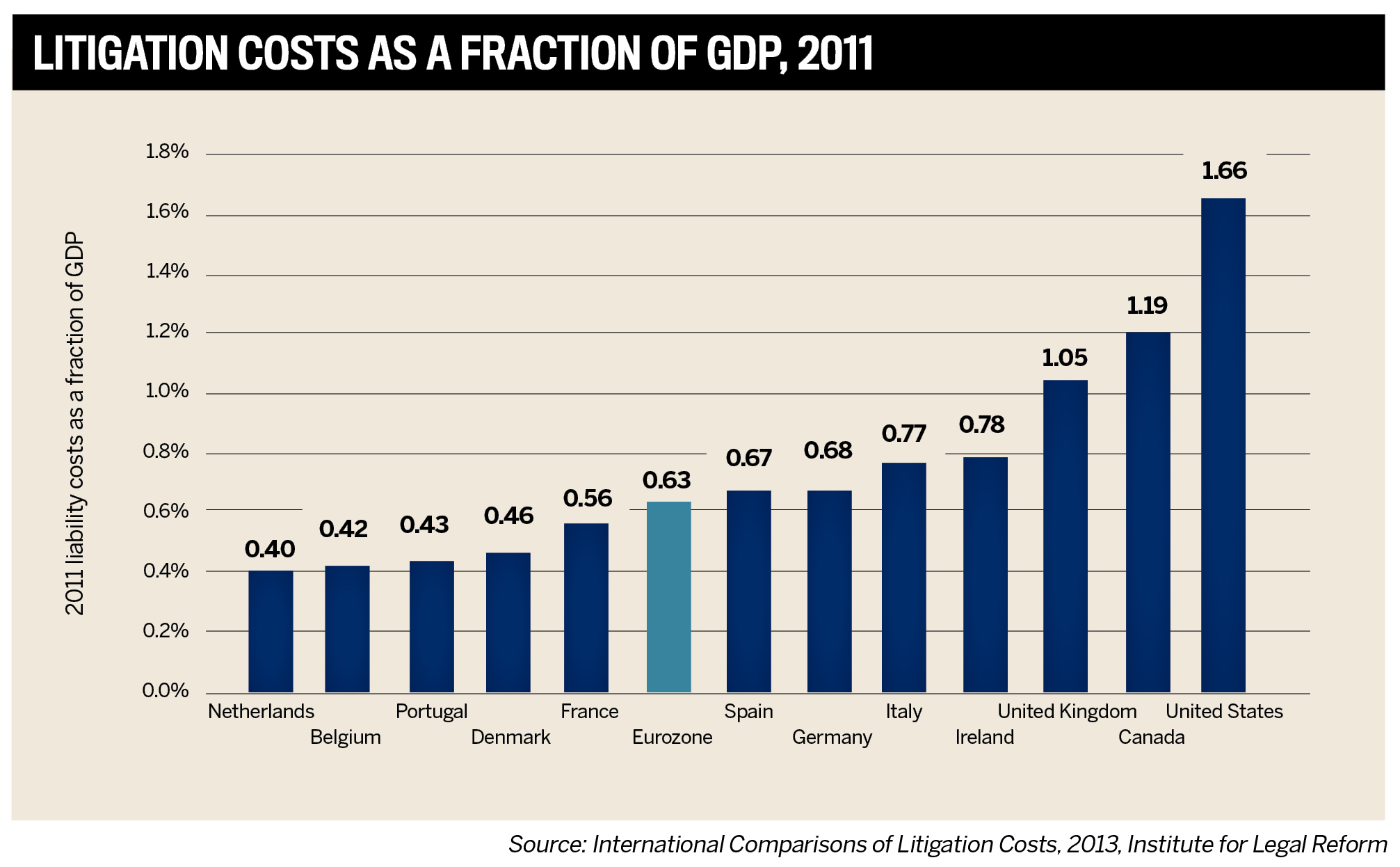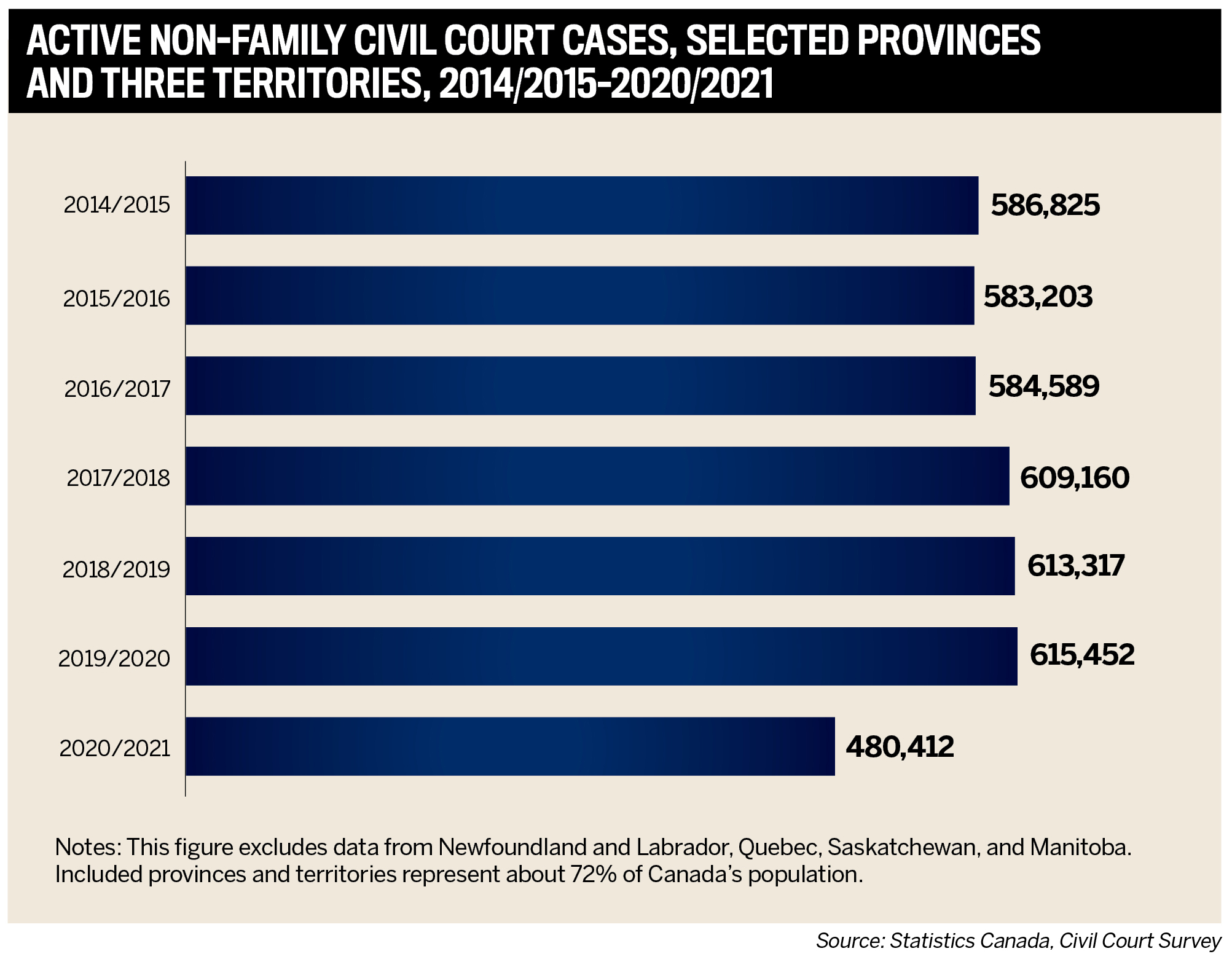

Jump to winners | Jump to methodology
Bringing in outside counsel is a critical decision for in-house lawyers for a firm that is embroiled in a legal dispute, as Dan Kuzmyk, general counsel and regional solicitor for the Regional Municipality of York, explains.
“It’s critical for our external legal partners to understand our business and our people,” he says. “I’m looking for external counsel who are willing to integrate with our in-house teams – both legal and non-legal.”
Oliver Ho, managing partner at Jensen Shawa Solomon Duguid Hawkes LLP in Calgary, one of this year’s top litigation boutiques, says the discussion of “being part of a team” comes up often with clients. What also comes up, he adds, is whether the outside counsel – it could be one lawyer or several – have the skill set and background to deal with the litigation matter at hand.
“We have to start with the premise that when a client reaches out to us, whether for the first time or as part of an ongoing relationship, they want various solutions”
Luisa Ritacca, Stockwoods LLP

“It could be about having a lawyer with an engineering background, or one in healthcare, or journalism,” he explains. “It could be about a certain level of seniority, or someone who knows opposing counsel and can massage the relationship to your client’s benefit.”
As well, Ho notes, if more than one lawyer is needed from an external firm, it may be important to have team members with particular legal skills. “Some might be great legal researchers; some may be great advocates in the courtroom. Of course, we want all our lawyers to be good in all these areas, but if you have something you can contribute to, we’ll find a place for you at JSS.”
Luisa Ritacca, managing partner at Stockwoods LLP, a Toronto-based litigation boutique also on this year’s list of winners, says clients are also looking for those “with the expertise and experience to litigate a matter fully, which means bringing all aspects of the matter to court, to arbitration, or whatever the logical end might be.”
Clients also want to hear solutions that may be short of getting involved in full-scale litigation. “We have to start with the premise that when a client reaches out to us, whether for the first time or as part of an ongoing relationship, they want various solutions.”
Xenia Kristos, general counsel and corporate secretary for BC forestry company Interfor Corporation, says that because her firm operates in so many jurisdictions, outside counsel is used because “they are the experts in the jurisdictions where they practice, in terms of both substantive law and litigation process.”
Typically, outside counsel is brought in when there is a case that is “unique, high value, high risk, or high profile,” Kuzmyk adds, especially when the in-house team might not have the specialized experience. The other reason for bringing in lawyers to deal with litigation matters is when the firm’s “internal capacity cannot keep pace.”
Kuzmyk, along with many other GCs, want to make sure that the firms they choose can meet the criteria they are looking for, and have a reputation as litigators that they hope will translate to success in mediation, arbitration, or the courtroom. So, looking at Canadian Lawyer’s Top Litigation Boutiques 2022 is a reliable way to ascertain the validation of law firms that may already be on a company’s list of external counsel.
“We do have a roster of very strong firms that we rely on for the significant majority of our external legal assignments,” says Kuzmyk. “At the same time, we are not bound to stick solely to the roster in cases where we need unique or specialized counsel.”
Integration and leveraging the corporate knowledge and culture “strengthens the understanding and effectiveness of the external legal team,” Kuzmyk adds.
“We are never looking for gas throwers on litigation matters. As a public entity, we are obliged to take the high road, to protect our organization in the public interest and to act scrupulously – reputation is important”
Dan Kuzmyk, Regional Municipality of York
Part of presenting clients with solutions is also understanding where the firm stands on their desire to litigate, whether for economic reasons or to maintain a relationship even though there is a dispute. “A big part of what we do is giving that kind of strategic advice,” says Ritacca, not necessarily automatically sending clients “into the throes of litigation.”
As Kuzmyk puts it, “we are never looking for gas throwers on litigation matters. As a public entity, we are obliged to take the high road, to be protecting our organization in the public interest and to act scrupulously – reputation is important.”
Ho at JSS says he understands that sentiment, pointing out that “there are many ways to be a good civil litigator, it’s not like there is only one path to get the job done; it’s about working with your client to know what the best solution for them is.”
For Kristos at Interfor, what she looks for in external counsel are those with industry knowledge but who are also “smart, measured, solution-oriented,” and who have the ability to navigate complex regulatory issues in a “cost-effective way,” though that doesn’t necessarily mean low hourly rates.
“We look for counsel who are developing diverse talent within their firms and encourage them to include those junior lawyers on our files,” she adds.
That’s an approach that Ho appreciates and fits in with his views on mentoring. “We want team members that are well-rounded lawyers. So, we encourage and try to get all our associates to be a part of larger files, and also take on their own files so that they can do things like questioning, and not just sit in the shadows and be second fiddle.”
“It’s more than about being paid, it’s about client relationships, about finding the best solution for them, about working with them in the future”
Oliver Ho, Jensen Shawa Solomon Duguid Hawkes LLP

Kuzmyk says it’s essential to understand how the external counsel approaches the question of compensation. “It’s about value – and I don’t necessarily mean who has the lowest rates,” he adds.
“When I review an account, I look closely at the docketed hours – does the time spent appropriately reflect the right mix of clerks, junior and senior lawyers working on the file?” Kuzmyk checks the “effective hourly rate,” which is the average of the total amount of fees billed, divided by the total number of hours docketed.
“If the experience level of the lawyers assigned to the file is properly balanced, the overall EHR should be reasonable.”
Kuzmyk says that firms on his roster might be able to give better rates based on volume, so there’s an attraction to stick to the roster as much as they can.
Kristos explains that Interfor usually has one go-to external litigation counsel in each jurisdiction. However, “sometimes they redirect us to another lawyer if they are conflicted or if someone else has greater expertise in the subject matter.”
Ho says, from the general public’s point of view, “why wouldn’t a law firm try to string out a case to make the most of billable hours, rather than trying to resolve the issue more expeditiously?
“But it’s more than about being paid, it’s about client relationships, about finding the best solution for them, about working with them in the future.”
Ritacca adds, “It comes down to the principle of a lawyer being the trusted advisor. You have to be completely frank with your clients, point out the strengths and weaknesses, the pros and cons of proceeding with litigation, and what is to be gained by taking a less aggressive step. Then they can make an informed decision and you can go with what they instruct you to do.”
“We look for counsel who are developing diverse talent within their firms and encourage them to include those junior lawyers on our files”
Xenia Kristos, Interfor Corporation
Canadian Lawyer’s sixth bi-annual Top Litigation Boutiques survey asked lawyers, in-house counsel, and clients across the country to select the litigation firms that represented the best in class in 2022. For the survey, which took place between August 8 and September 2, respondents were asked to rank firms from a long list provided. They were also given the option of adding a firm not included in that list. Criteria considered included regional service coverage, client base, notable mandates, service excellence and legal expertise of the firms.
To qualify, firms were required to derive at least 80 percent of their work from litigation and have more than one lawyer in this practice area. In total, 1,008 ballots were received, casting votes for 72 candidates on Canadian Lawyer’s list. Final rankings were determined through a points system in which firms were rewarded on a sliding scale for the number of first-to-tenth-place votes received. Voters had to rank a minimum of five firms.
The quantitative results were combined with the Lexpert peer survey results where applicable and feedback from respected senior members of the bar.